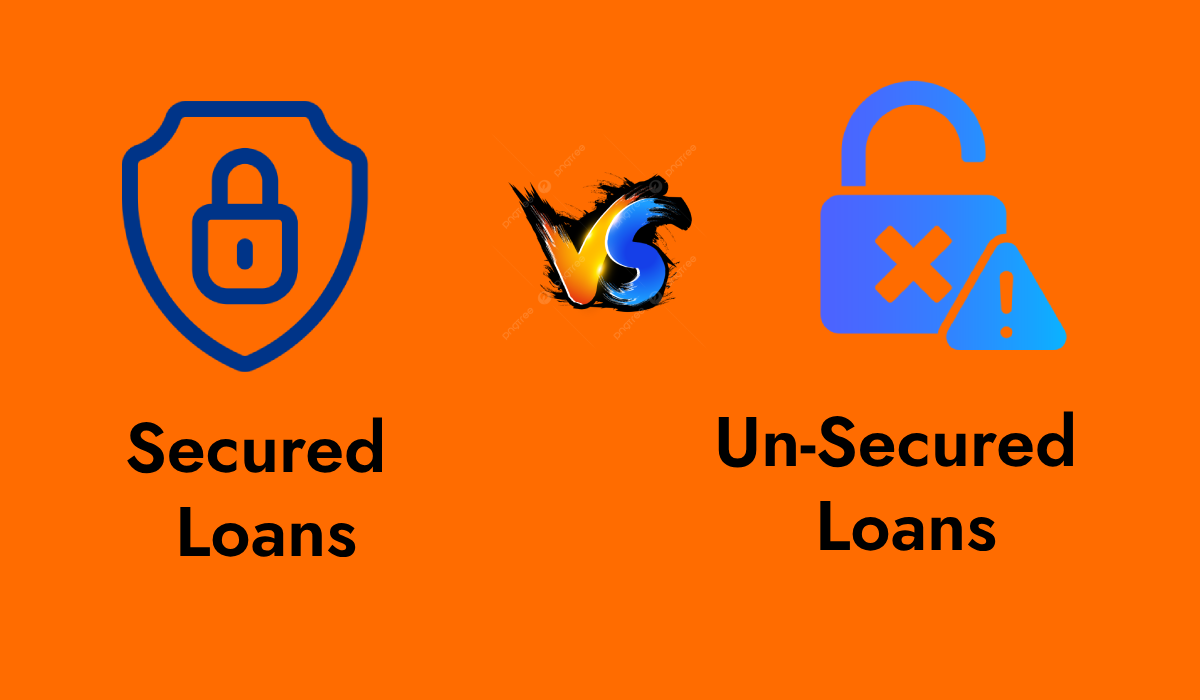If you need a personal loan, one of the first major considerations you’ll have to make is whether to get a secured loan or an unsecured loan. There are numerous distinctions between the two, all arising from one fact: a secured loan is backed by collateral (i.e., an asset you own), whereas an unsecured loan is not.
Best personal loan

- Est. APR = 6.99%
- Loan type : Personal
- Loan amount: $1k - $50k
- Min credit score: 580
4.3
editorial team. We score based on factors
that are helpful for consumers, such as
how it affects credit scores, the rates and
fees charged, the customer experience,
and responsible lending practices.
Best personal loan for bad credit
- Est. APR = 6.99-35.99%
- Loan Amount = $100-$40K
- Min Credit Score = 300
4.8
editorial team. We score based on factors
that are helpful for consumers, such as
how it affects credit scores, the rates and
fees charged, the customer experience,
and responsible lending practices.
Best personal loan for bad credit

- Est. APR = 9.99 - 39.99%
- Loan Amount = $1k - $50k
- Min Credit Score = 580
4.8
editorial team. We score based on factors
that are helpful for consumers, such as
how it affects credit scores, the rates and
fees charged, the customer experience,
and responsible lending practices.
Best Personal Loan for No Credit

- Est. APR 7.80% - 35.99%
- Loan amount $1k– $50k
- Min credit score 300
4
editorial team. We score based on factors
that are helpful for consumers, such as
how it affects credit scores, the rates and
fees charged, the customer experience,
and responsible lending practices.

- Est. APR 5.99% to 35.99%
- Loan amount $500 to $5,000
- Min credit score = Any
3.7
editorial team. We score based on factors
that are helpful for consumers, such as
how it affects credit scores, the rates and
fees charged, the customer experience,
and responsible lending practices.
- Est. APR 5.99%-35.99%
- Loan amount $1Kto $35K
- Min credit score = 580
4.4
editorial team. We score based on factors
that are helpful for consumers, such as
how it affects credit scores, the rates and
fees charged, the customer experience,
and responsible lending practices.
- Flexible loan amounts
- 24/7 Support
- No prepayment fees
4
editorial team. We score based on factors
that are helpful for consumers, such as
how it affects credit scores, the rates and
fees charged, the customer experience,
and responsible lending practices.
What are Secured Loans?
A secured loan is named after the collateral used to secure it. This collateral could be anything you own and promise to the lender. If you fail to repay the loan, the lender may repossess your collateral.
You are undoubtedly already familiar with secured loans in other aspects of your life, such as home loans have your home, auto loan has your car, and equipment loan has equipment as collateral.
The same logic applies to a secured personal loan. If your lender allows it (which not all do), you can pledge collateral like a car, a savings account, or a certificate of deposit.
Secured personal loans may be better if your credit does not qualify for another sort of personal loan. In fact, some lenders do not require a minimum credit score to apply for this type of loan. Secured personal loans, on the other hand, carry a higher risk because you may lose your asset. If you pledge your vehicle as security and the lender repossesses it, you may be unable to get to work.
A secured personal loan can:
- Be easier to qualify for. Secured personal loans are less risky for the lender because they can confiscate your collateral if you fail to repay the loan. In fact, some lenders may require you to use collateral if your credit score or other qualifications are not optimal.
- Be less expensive than other loans. Because secured personal loans are less risky for lenders, they often have lower interest rates than other types of loans. Putting up collateral for a personal loan can help you save money over time.
- Have higher borrowing limits. Lenders may be ready to lend you more money if they have a better possibility of receiving something back if you fail to repay. If you need to borrow a substantial sum of money, a secured personal loan may be more appropriate.
- Place your investments at danger. If you believe you will default on a loan, it is never a good idea to take one out. This is especially true for secured personal loans, though. If you don’t pay, your lender can seize your collateral.
What is an unsecured personal loan?
The truth is that most personal loans are unsecured, which means there is no security required. If you don’t pay, the lender risks losing all of the money they lent you. As a result, they provide a higher risk to the lender, which has an impact on other loan characteristics.
Unsecured loans are also prevalent in other aspects of your life. These lending instruments are also classified as unsecured loans because they are not backed by any collateral:
- Credit Cards
- Line of credit
- Student loans
Before you may apply for an unsecured personal loan, lenders will consider your credit score, payment history on your credit report, and income. Most lenders require a credit score of at least 670 to qualify for an unsecured personal loan.
Unsecured personal loans may:
- Be more difficult to qualify for. Lenders are less reluctant to provide money for unsecured loans since they have no immediate recourse for repaying any outstanding debt. Unless you can demonstrate that you are more likely to repay the loan.
- Have higher interest rates. Because lenders have no way to recoup their costs if you default on your loan, they frequently offer higher interest rates.
- Have a lower borrowing limit. Lenders are more careful with unsecured loans than secured ones. That is why, when applying for an unsecured loan, you are less likely to be granted for larger amounts than if you seek for a secured loan. You can borrow a million dollars or more for a mortgage (secured by your property), but you would never be able to borrow that much with an unsecured loan.
- You will not lose your assets if you default—at least not initially. If you default on an unsecured personal loan, your lender has no immediate action to take.
Best personal loan

- Est. APR = 6.99%
- Loan type : Personal
- Loan amount: $1k - $50k
- Min credit score: 580
4.3
editorial team. We score based on factors
that are helpful for consumers, such as
how it affects credit scores, the rates and
fees charged, the customer experience,
and responsible lending practices.
Best personal loan for bad credit
- Est. APR = 6.99-35.99%
- Loan Amount = $100-$40K
- Min Credit Score = 300
4.8
editorial team. We score based on factors
that are helpful for consumers, such as
how it affects credit scores, the rates and
fees charged, the customer experience,
and responsible lending practices.
Best personal loan for bad credit

- Est. APR = 9.99 - 39.99%
- Loan Amount = $1k - $50k
- Min Credit Score = 580
4.8
editorial team. We score based on factors
that are helpful for consumers, such as
how it affects credit scores, the rates and
fees charged, the customer experience,
and responsible lending practices.
Best Personal Loan for No Credit

- Est. APR 7.80% - 35.99%
- Loan amount $1k– $50k
- Min credit score 300
4
editorial team. We score based on factors
that are helpful for consumers, such as
how it affects credit scores, the rates and
fees charged, the customer experience,
and responsible lending practices.

- Est. APR 5.99% to 35.99%
- Loan amount $500 to $5,000
- Min credit score = Any
3.7
editorial team. We score based on factors
that are helpful for consumers, such as
how it affects credit scores, the rates and
fees charged, the customer experience,
and responsible lending practices.
- Est. APR 5.99%-35.99%
- Loan amount $1Kto $35K
- Min credit score = 580
4.4
editorial team. We score based on factors
that are helpful for consumers, such as
how it affects credit scores, the rates and
fees charged, the customer experience,
and responsible lending practices.
- Flexible loan amounts
- 24/7 Support
- No prepayment fees
4
editorial team. We score based on factors
that are helpful for consumers, such as
how it affects credit scores, the rates and
fees charged, the customer experience,
and responsible lending practices.
However, this does not relieve you of all responsibility. Your lender can still record the defaulted loan and have a negative impact on your credit. They can even take you to collections and sue you in court. If the judge authorizes it, they may even garnish your earnings. So, while you may not lose the contents of your bank account immediately, you will eventually have to pay up in some way.


 Read More
Read More 




